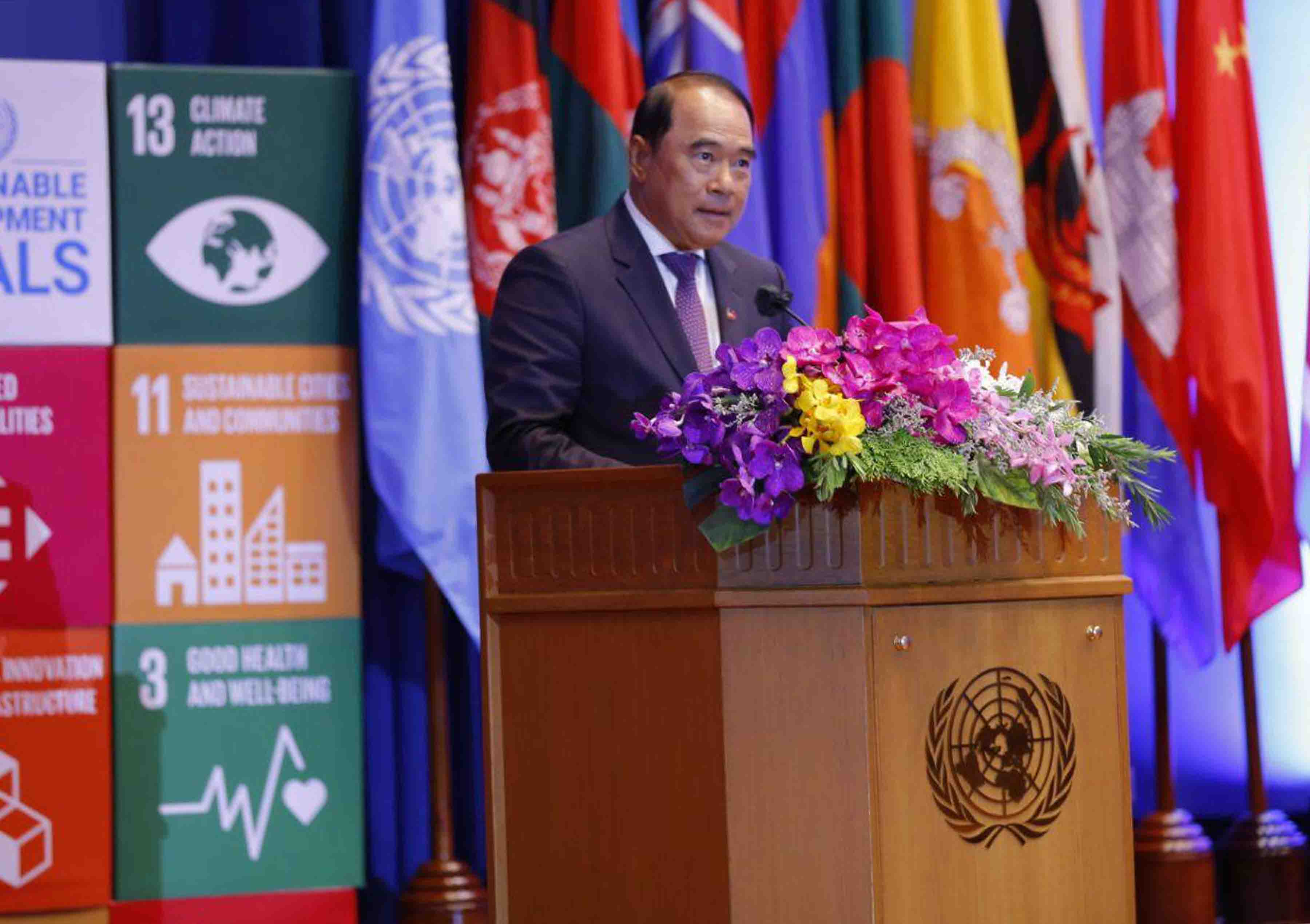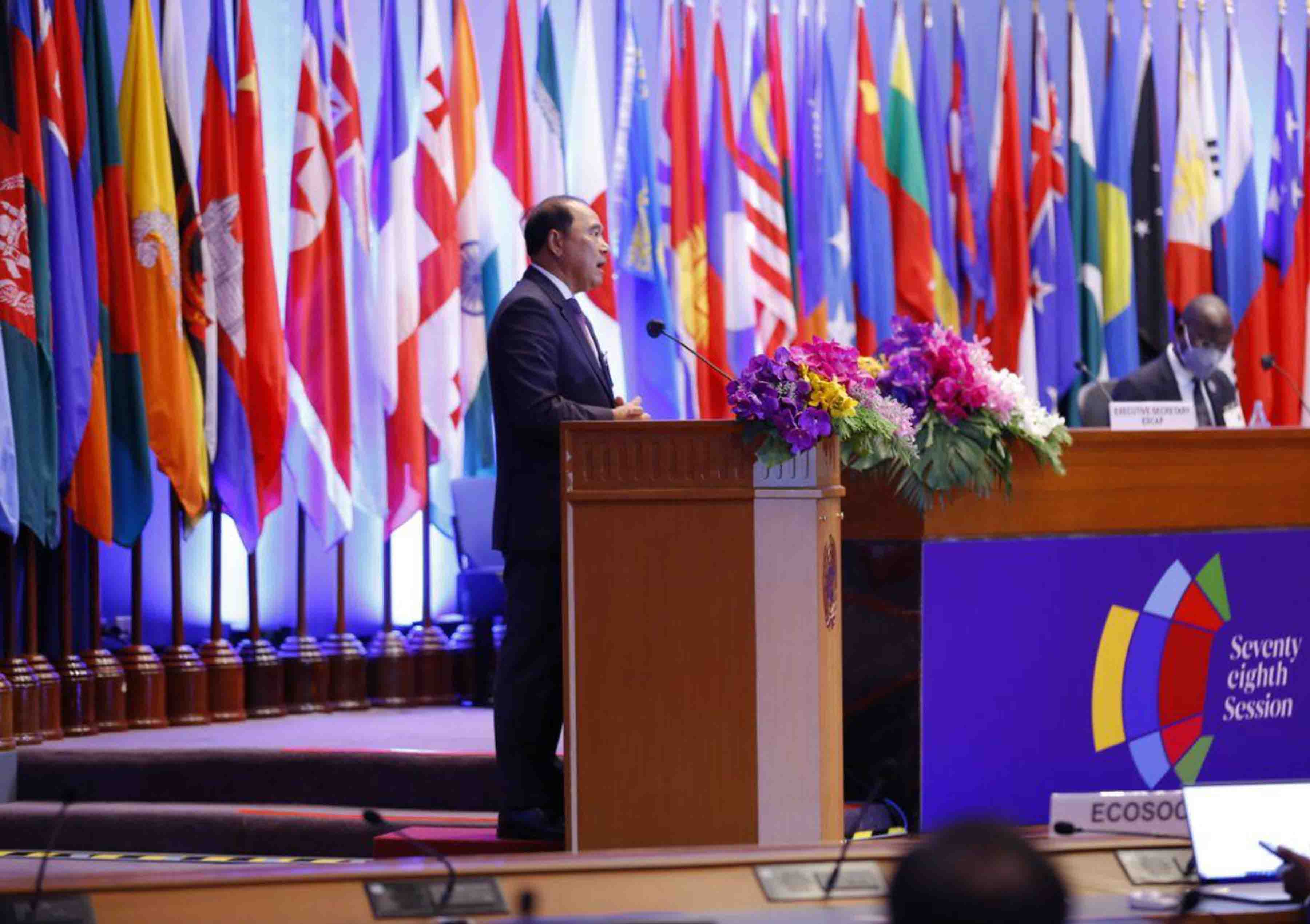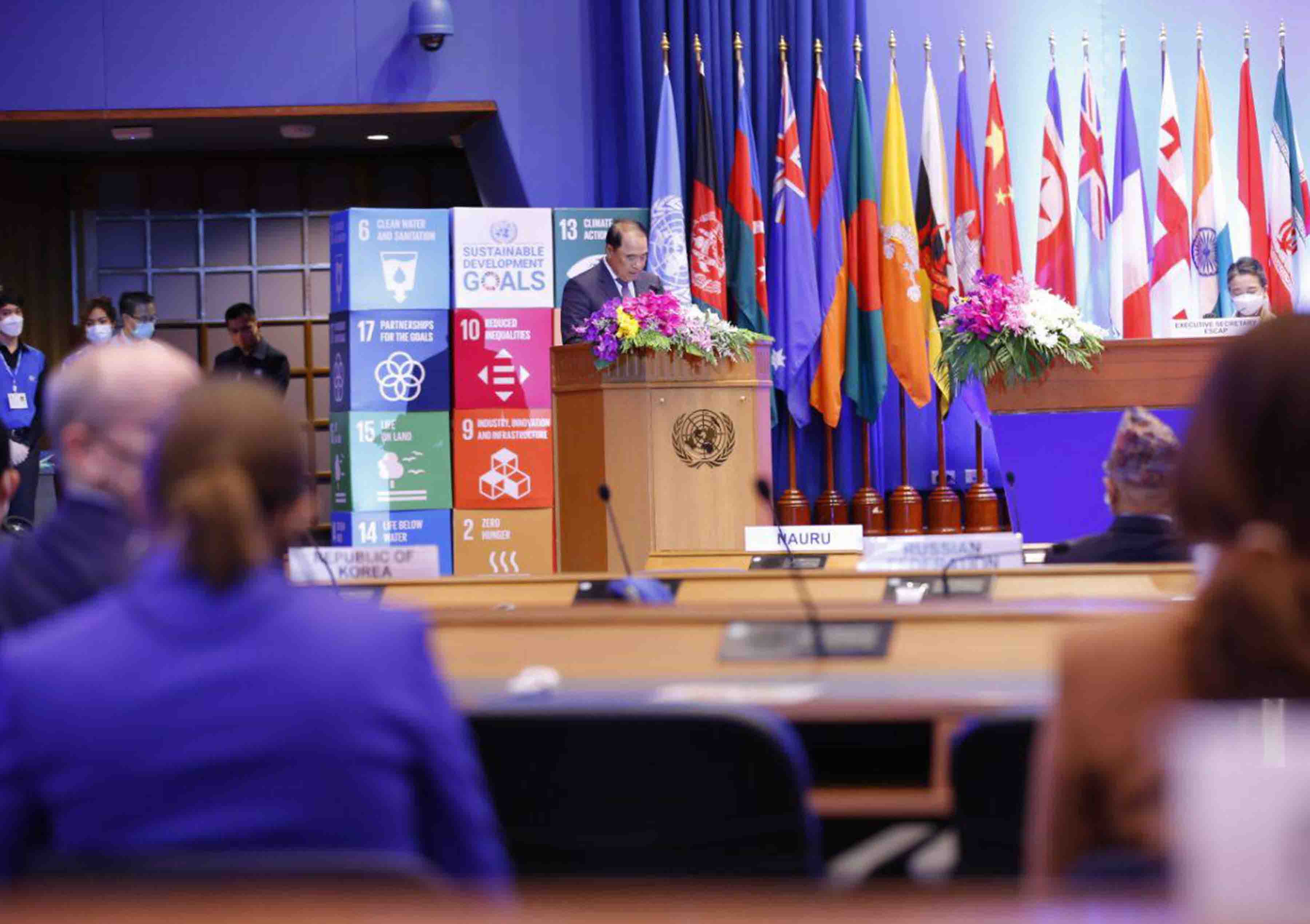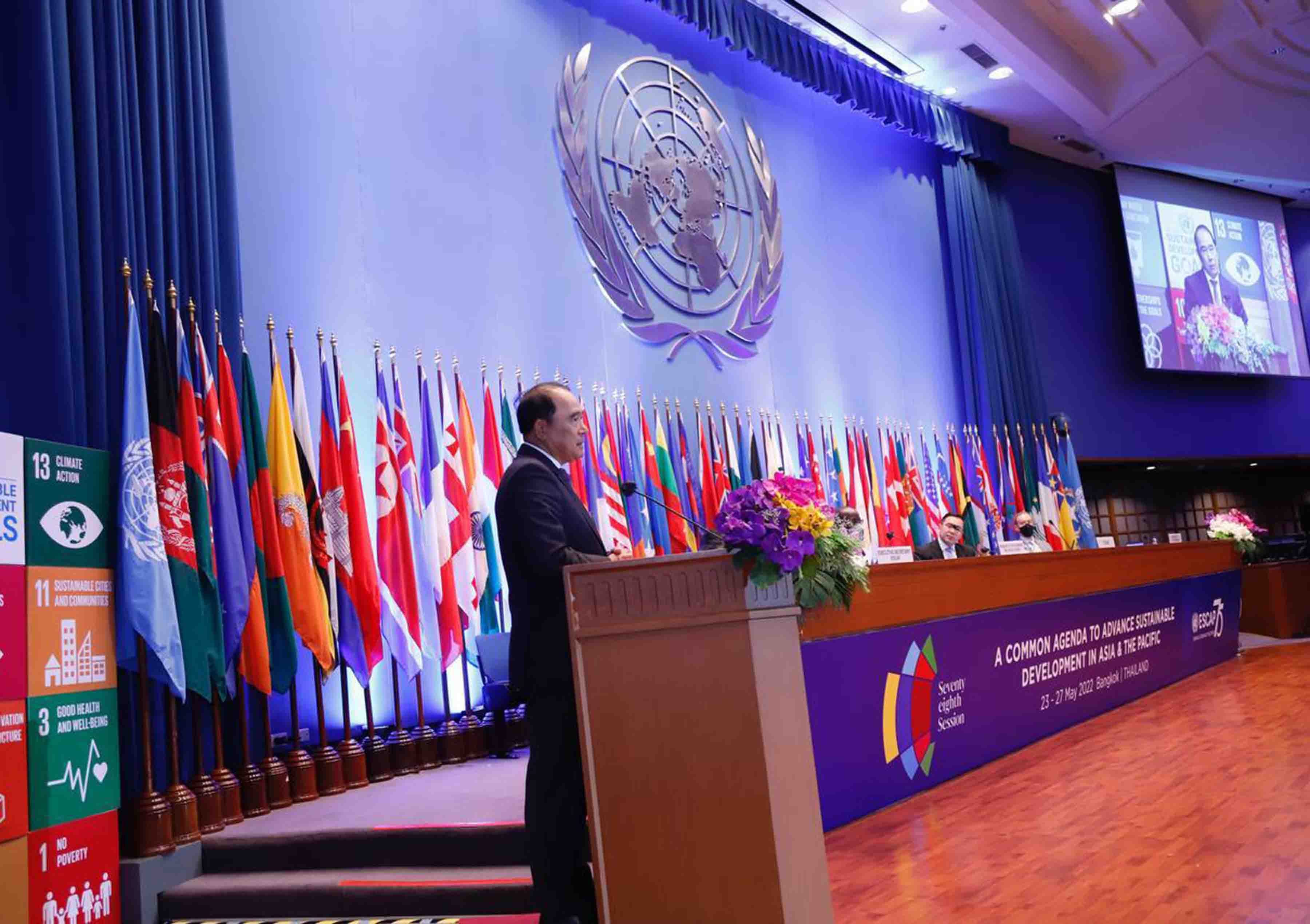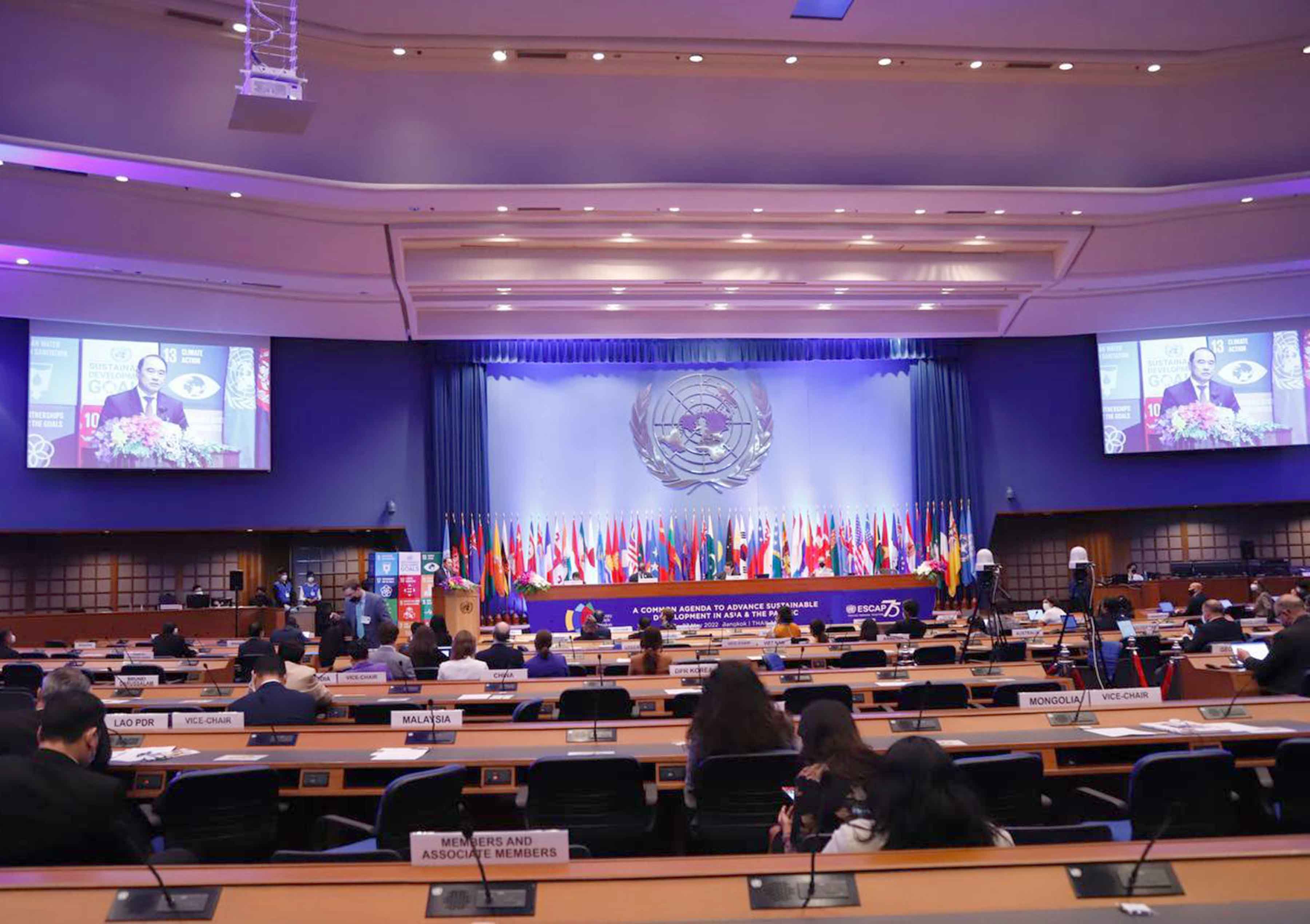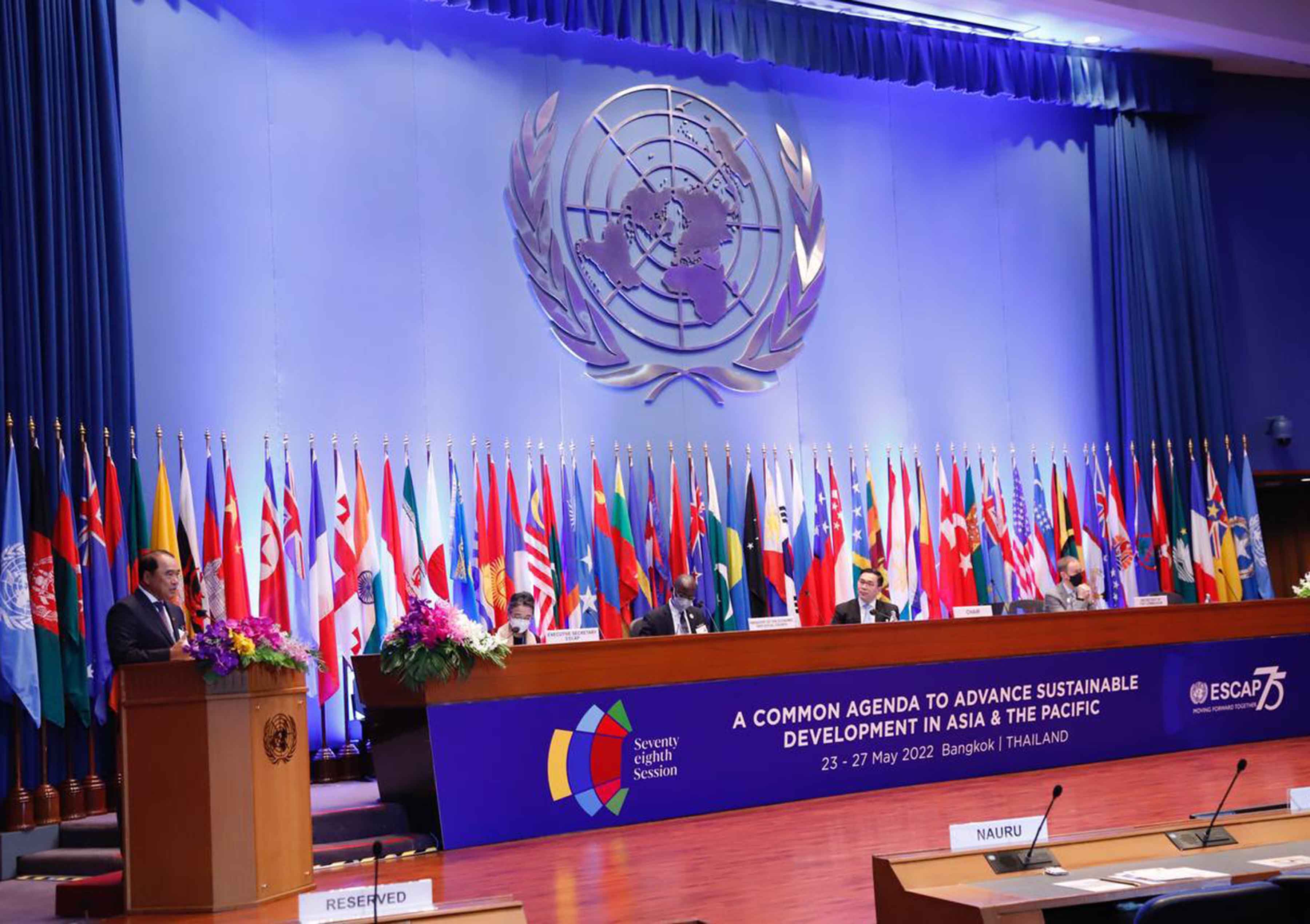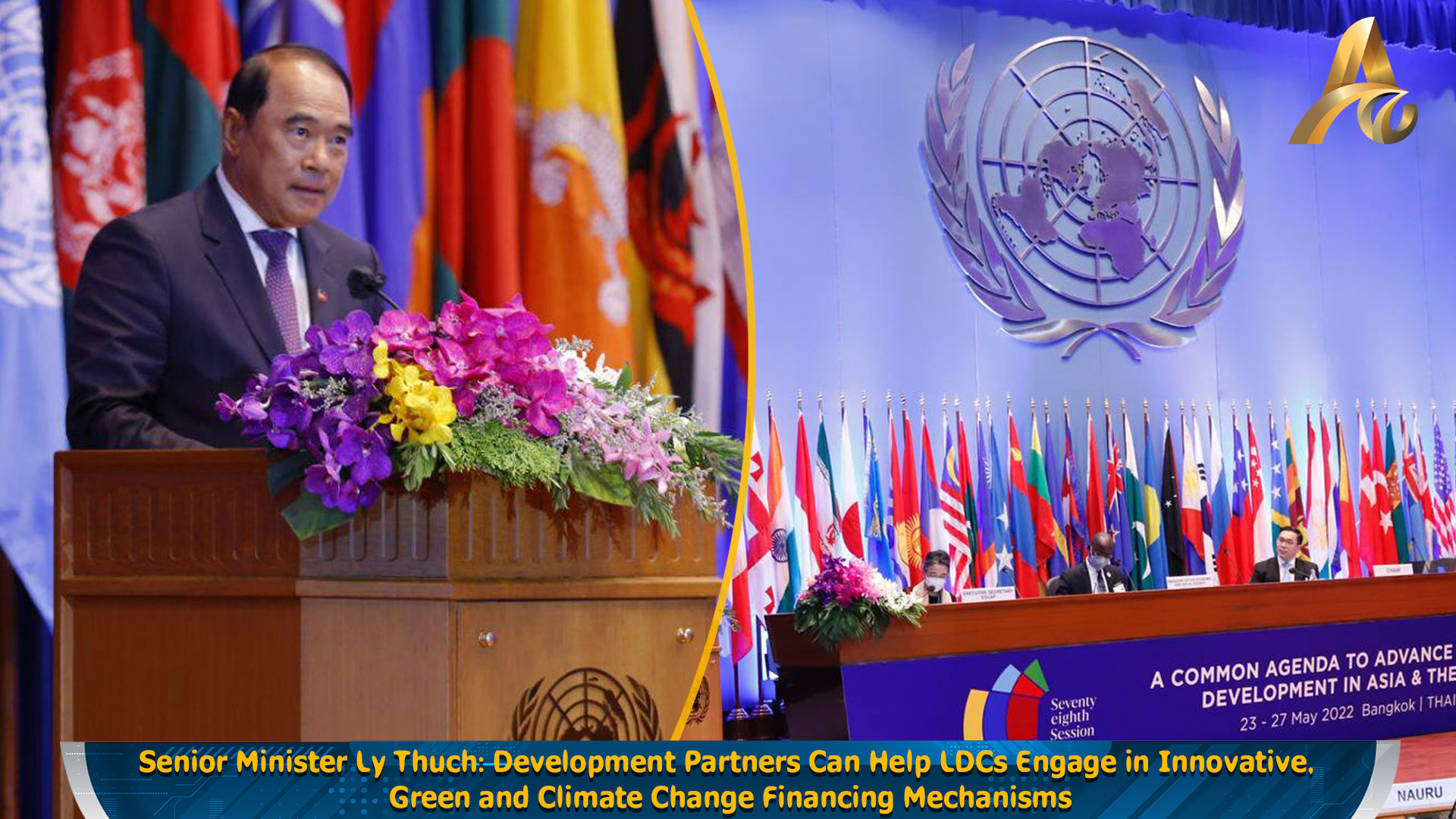
Senior Minister Ly Thuch: Development Partners Can Help LDCs Engage in Innovative, Green and Climate Change Financing Mechanisms
PHNOM PENH: Senior Minister Ly Thuch has said that while many measures have been put in place in Cambodia to boost the recovery of economic activities from the Covid-19 pandemic, the Royal Government still sees a rapid and substantial increase in the demand for financing, as government savings have increasingly diminished after more than a year of interventions.
He made this statement while delivering a speech at the Ministerial segment of “The Special Body of Least Developed Countries, Landlocked Developing Countries and Pacific Island Developing States” at the 78th session of the United Nations Economic and Social Commission for Asia and the Pacific (ESCAP), held in hybrid online-offline format.
The Senior Minister said that in addressing this challenge, the Royal Government of Cambodia has focused on improving the efficiency of the utilization of limited government resources, and on ensuring the sustainability of public finances.
“In other words, the formulation of financing mechanisms has focused on the efficient use of existing resources, while the mobilization of new sources for financing must be done in line with remaining budget space and in accordance with the principles set out in the government Public Debt Management Strategy,” said Senior Minister Ly Thuch.
He further added that tax revenue collection in Cambodia, in the first quarter of 2022, has increased more than 22 per cent year-on-year, which is attributable to a number of factors including the “strengthening of good governance and good administration,” and the streamlined management of tax collection through digital systems, including e-filing, e-payment and the pre-filing app.
On the subject of what development partners could do to collaborate with least developed countries (LDCs) to improve resource mobilization moving forward, he highlighted the Integrated National Financing Framework initiative developed by the United Nations, which offers a useful template of a holistic approach that encompasses all resource flows with links to their management, with the ultimate goal of achieving the sustainable development goals (SDGs).
“Specifically, through this financing framework, the development partners could help LDCs engage in innovative, green and climate change financing mechanisms, such as green or SDG bonds, impact investment and Bio-Fin to expand sources of financing for development,” he said.
He further added, “These bonds can commit the issuer to invest proceeds exclusively in green projects that generate climate or other environmental benefits, such as renewable energy, energy efficiency, sustainable waste management, sustainable land use, biodiversity, clean transportation and clean water. They can provide a cheap, reliable and scalable source of capital for a variety of stakeholders involved in the 2030 Agenda, including companies, governments, cities and public-private partnerships (PPPs).”
The 78th session of the United Nations Economic and Social Commission for Asia and the Pacific (ESCAP) is being held in hybrid format, from 23-27 May 2022, at the United Nations Conference Centre in Bangkok, Thailand and online. The session is guided by the theme “A common agenda to advance sustainable development in Asia and the Pacific," and offers an opportunity for discussion on the future of regional cooperation centered around a new form of multilateralism and regional cooperation.
